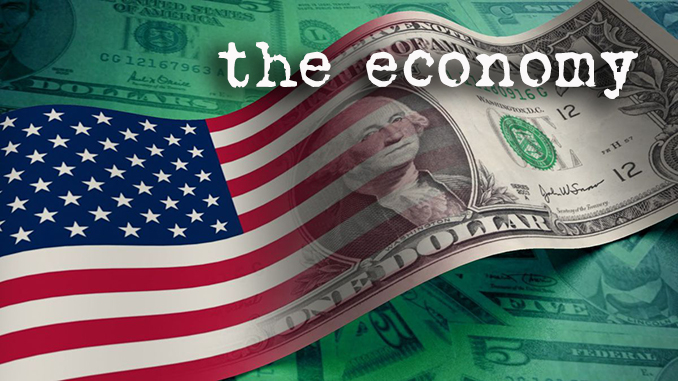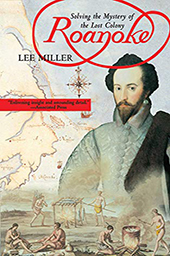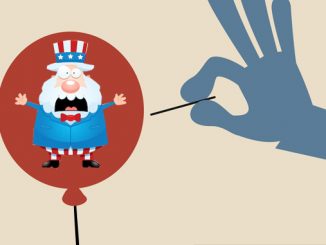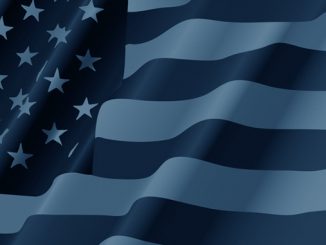
By Mark Anderson
Wisconsin resident Conrad LeBeau is an author and activist whose father, a dairy farmer, taught him about the predatory banking system at a young age, which planted deep seeds for his quest today to help the nation’s farmers—and, by extension, people from all walks of life—as they suffer from the scourge known as the debt-based money system. LeBeau has created a flyer and petition that focuses on the plight of farmers in this age of corporate mega-farms that tend to suffocate local family farms.
“I was born in lower Michigan, but I was raised in upper Michigan until I was about 16, and then my father moved to the city after he got out of the farming business,” LeBeau told this AFP writer. “Around 1956-57, we had a dairy farm in upper Michigan, and it was very small, with only 30 milk cows, but it wasn’t a survivable business. I was milking cows—I was probably 14 years old at the time—and my father, who lived through the Great Depression of the 1930s, was a follower of Fr. Charles Coughlin.”
Fr. Coughlin (1891-1979) was the courageous Royal Oak, Mich. radio priest whose volcanic weekly broadcasts, public speeches, pamphlets, books, and his newspaper, Social Justice, became an enormous threat to the banking establishment—and eventually to President Franklin D. Roosevelt. Coughlin reached tens of millions of Americans with his insightful and forceful remarks about the banking racket and needless wars.
“Fr. Coughlin would speak every Sunday on religious topics, and he also spoke on banking and monetary reform,” LeBeau noted. “That’s about the time the Great Depression set in. During the Depression, he had proposed a solution to it, recommending that Congress print some money and spend it, and create jobs, which Congress pursued via the Frazier-Lemke Farm Bankruptcy Act [73rd Congress]. That bill almost passed the House of Representatives, but it didn’t, and that was due to the banking lobby.”
LeBeau recalled: “My father, born in 1905, told me what caused the Crash of 1929. He said there were two factors: One was that Herbert Hoover, the president early in the Depression, tried to pay off the national debt. The second factor was that the Federal Reserve raised interest rates. The combination of those two factors shrank the money supply, so there was less money and less credit available for people to spend, and that led to the stock market crash in October of 1929 and the subsequent Depression.”
Fast forward to 1979-80, when LeBeau was a real estate broker. At the time, the Federal Reserve Board was chaired by Paul Volcker. “That former chairman of the Federal Reserve Bank of New York thought people were living too well—that there was ‘too much money’ and ‘too much inflation’—so he kept jacking up interest rates until they got up to about 18%, which put the country into a very severe recession. At the same time, at least 1 million farmers lost their farms.”
All of the foregoing inspired LeBeau—who spent the early 1980s writing model laws to try and help farmers avoid foreclosures—to continue his activism. Among other things, a flyer that accompanies his petition (see his ad on the facing page) calls for:
- a national moratorium on farm foreclosures,
- reducing interest rates on farms by 50% or more, and
- among other things, minimum mark-up laws to support fair prices on domestic farmers’ produce while prohibiting unfair foreign competition.
In its most dramatic passages, the petition itself calls for circumventing the credit monopoly held by the banks in a manner that LeBeau said could give the U.S. government a steady flow of interest-free funds:
The growth of the national and private debts of farmers and all Americans grows exponentially with the interest charged for the use of this [private banking] credit, and because the government’s [official] national debt exceeds $23 trillion, and [the] constitutional authority to coin or print money are . . . exclusive powers granted to Congress—and not private bankers—and because the federal government can and should offer real competition in the marketplace to the credit [monopoly] of the big banks, we ask for . . . the president or Congress to declare a national moratorium on all farm foreclosures, and evictions. Because the banking system uses its own records as digital dollars that are stored in their computers, and because all the reforms we petition for herein shall require substantial amounts of money or credit, we ask the federal government to pass a law requiring the Federal Reserve Banks to create an interest-free deposit of digital (bookkeeping) dollars in the U.S. [Treasury’s] checking account at the Federal Reserve . . . in a sum of no less than $100 billion . . . and to permanently replenish funds on a recurring basis on any day the U.S. Treasury account balance drops below $100 billion; and that all future deposits of coins or currency issued by the U.S. Treasury shall be deposited in the government’s checking account at the Federal Reserve . . . for their full legal-tender value and add to the balance of available funds.

The books LeBeau has written include Money Creation: From Knights Templars to Wall Street Bankers, available at www.Lebeaubooks.com.
Mark Anderson is AFP’s roving editor. Email him at [email protected].






